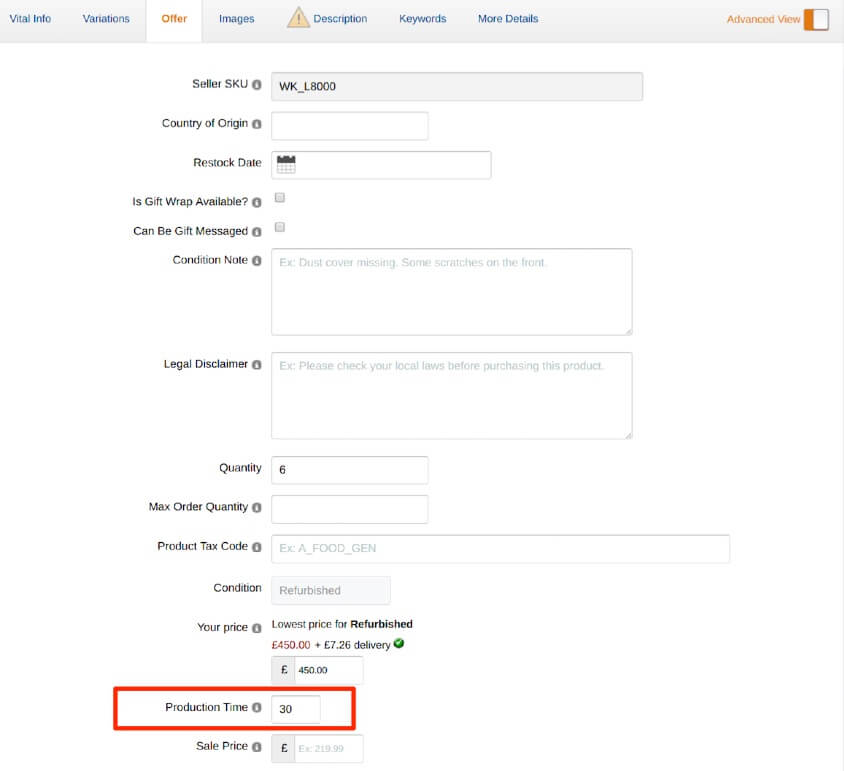
Tools should have support systems that include email, chat, or phone support. Ecommerce managers might not be experts in handling some advanced-level problems that can come with this. Tasks like inventory syncing, price adjustments, and others need heavy-duty technical resources. Supportĭoes the product come with active support? Support is critical when you are an online seller with multiple online marketplaces. Additional customization features to ensure a smooth UI/UX experience are also important.
#UPLOADING FROM FINALE INVENTORY TO AMAZON SOFTWARE#
Customizationĭoes the software have customization features? Multi-channel ecommerce software needs to be fluid to adapt to and integrate with all the major marketplaces. This helps in better store management and avoids overselling by using up-to-date product data. The tool should be able to track inventory, manage product information, and showcase accurate inventory levels across various platforms in real-time. Multi-Channel Inventory Syncingĭoes the software have real-time multi-channel inventory syncing? When selling on multiple online stores, inventory syncing becomes a decisive feature in the success of an ecommerce business. What key features make the best multi-channel ecommerce software? I specifically searched the web for these key and decisive features that help with online sales in an omnichannel context. Multi-Channel Ecommerce Software Key Features
Value for $: How appropriate is the price for the features, capabilities, and use case? Is pricing clear, transparent, and flexible?. To support that, it needs to integrate without any hiccups with all the major marketplaces, as well as with other ecommerce tools in your tech stack, such as PIM software, PLM software, warehouse management systems, and more. Integrations: Is it easy to connect with other tools? Any pre-built integrations? Multi-channel ecommerce software is geared towards selling on multiple platforms. Usability: Is it easy to learn and master? Does the company offer good tech support, user support, tutorials, and training? Do the knowledge base and user guides help in getting the job done?. User Interface (UI): Is it clean and attractive? Is the user interface easy to navigate, and is it easy to execute your desired actions?. What do I look for when I select the best multi-channel ecommerce software? Here’s a summary of my evaluation criteria: Multi-Channel Ecommerce Software Comparison Criteria Here’s a shortlist of the best multi-channel ecommerce software: The Best Multi-Channel Ecommerce Software List To help you further, I have outlined the strength of each product listing software as well as criteria for selection. The list features multi-channel ecommerce tools that have all the critical features and functionalities that one needs to execute multi-channel ecommerce management with seamless ease. I searched the web for the 10 best multi-channel ecommerce software. Think of it as the Death Star from Star Wars, managing and controlling the entire fleet of the empire from a single centralized platform ( Nerd level 1000). This reduces the work of manually managing each platform’s product catalog, stock levels, price adjustments, and more. Multi-channel ecommerce software provides ecommerce managers with a centralized platform or administration to sell products simultaneously on multiple marketplaces like Amazon, eBay, and more. To simplify this, ecommerce managers can use multi-channel ecommerce software. 



You need a centralized platform to manage and sync inventory, and keep track of the various support issues that can arise from selling in multiple places simultaneously. But managing these marketplaces individually becomes overwhelming pretty fast. As an ecommerce manager, you are likely selling your product on multiple ecommerce marketplaces.








 0 kommentar(er)
0 kommentar(er)
